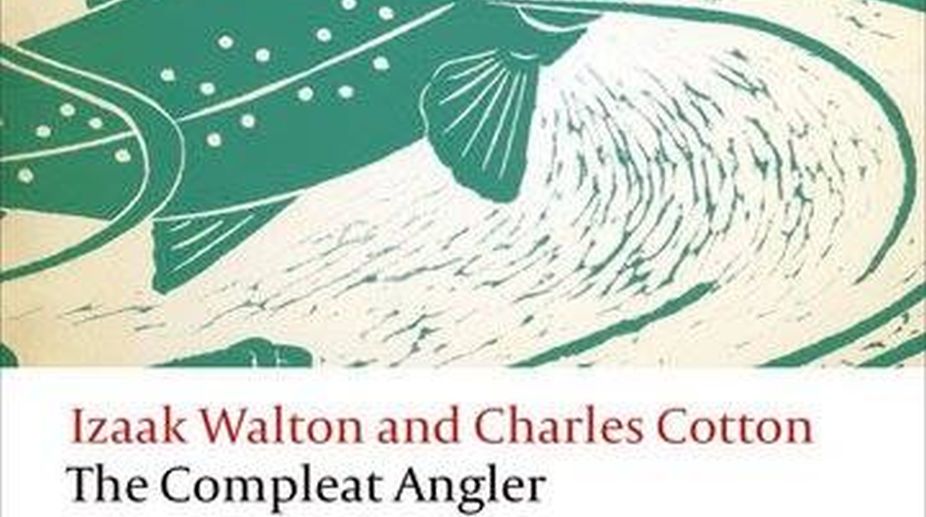Geoffrey Chaucer (1343-1400), known as the “Father of English literature”, lived during the Middle Ages in England, which was an era that stretched from 500 to 1500 AD.
He formalised the use of the Middle England vernacular at a time when the dominant literary languages in England were French and Latin. In Middle England’s vernacular he spelt The Canterbury Tales as Tales of Caunterbury.
Izaak Walton (1594-1683) wrote in the same vernacular and titled his book, The Compleat Angler, published in 1653, which is a guide for angling or fishing. The book’s plot is about Piscator, a fisherman, Venator, a hunter and Auceps, a falconer.
Advertisement
They meet by chance and discuss each man’s preferred sport. Piscator begins with an eloquent discussion on the joys of fishing and convinces Venator, to accompany him for several days of fishing. Piscator explains the art of fishing and Venator is told about bait and all about the importance of fishing equipment, types of bait used for different fish, and the methods of catching and cooking various kinds of fish.
Some fish are wily creatures and detect glistening bait immediately and some are silly enough to be caught as soon as they attempt to swallow enticing bait.
Piscator and Venator encounter another hunter who pursues otters.
Even though both have developed a good rapport between them, Piscator confides to Venator that he dislikes hunters because they swear excessively and utter lewd jests. Walton writes that “God did never make a more calm, quiet innocent recreation than angling.”
He teaches beginners how to lure fish and writes a recipe, to cook pike fish, which includes stuffing it with pickled oysters, oranges and garlic.
Many scenes in the book depict pastoral views as he and Venator see singing milkmaids, with their smiles, reminding people of a wonderful world hidden within an idyllic countryside. What stands out in Walton’s writing, compared to other books on fishing, is his profound understanding of natural history and certain ecosystems that are integral to angling.
He has focused on an awareness of the environment, which critics like Fennel Priory, assert that Walton’s book with its rare insight “was centuries ahead of his time.”
His narration has transported one to a happier place. The Compleat Angler was certainly never the only fishing handbook of its day but it was, undoubtedly, the most popular. In fact, by the middle of the 20th century the book had been reprinted nearly 400 times! Its unique content compared to other books on fishing, its delightful style that charms a reader, and an insight into human nature, has given the narrative a special place.
Being a book on fishing, The Compleat Angler, does not neatly fit into any literary category. Critics have wondered if the book only articulates thoughts on pastoral life. It has also been interpreted as a georgic or a poem dealing with rural concerns; it has even been viewed as an eclogue, a poetic dialogue between shepherds and other characters of the countryside.
The difficulty in categorising this book lies in separating the voluminous practical information from its more literary aspects, and this appears to be one reason why the The Compleat Angler suffered from critical neglect.
However, its structure, wit and historical undertones explain why this humble narrative has been the most frequently reprinted book in the English language after the Bible.
Walton was 60 years old when he wrote this book and lived when England was in the midst of social upheaval. He was alive at the time of Oliver Cromwell, when there were social, religious and political extremes. He was a friend of John Donne and Charles Cotton.
He collected inputs from Cotton, a keen angler and a famous writer, similar to Donne. Walton entertains his readers with a ballad titled The Angler’s Song, and this composition interprets his exultation derived from fishing.
As inward love breeds outward talk The hounds some praise, and some the hawk. Some better pleas’d with private sport Use tennis, some a mistress court: But these delights I neither wish Nor envy, while I freely fish.
Who hunts, doth oft in danger ride; Who hawks,lures oft both far and wide Who uses games shall often prove, A loser, but who falls in love, Is fetter’d in fond Cupid’s snare; My angling breeds me no such care.
The Compleat Angler is not only about fishing but also about life.
The author has connected the environment and mankind’s different attitudes to reveal our understanding of life.
Advertisement











